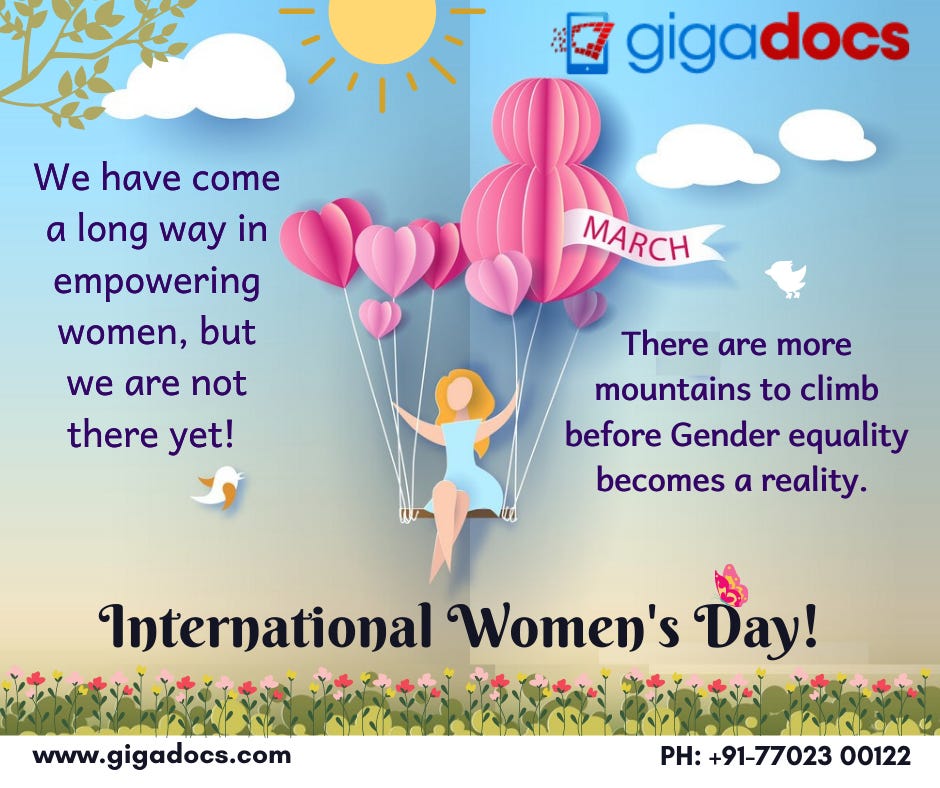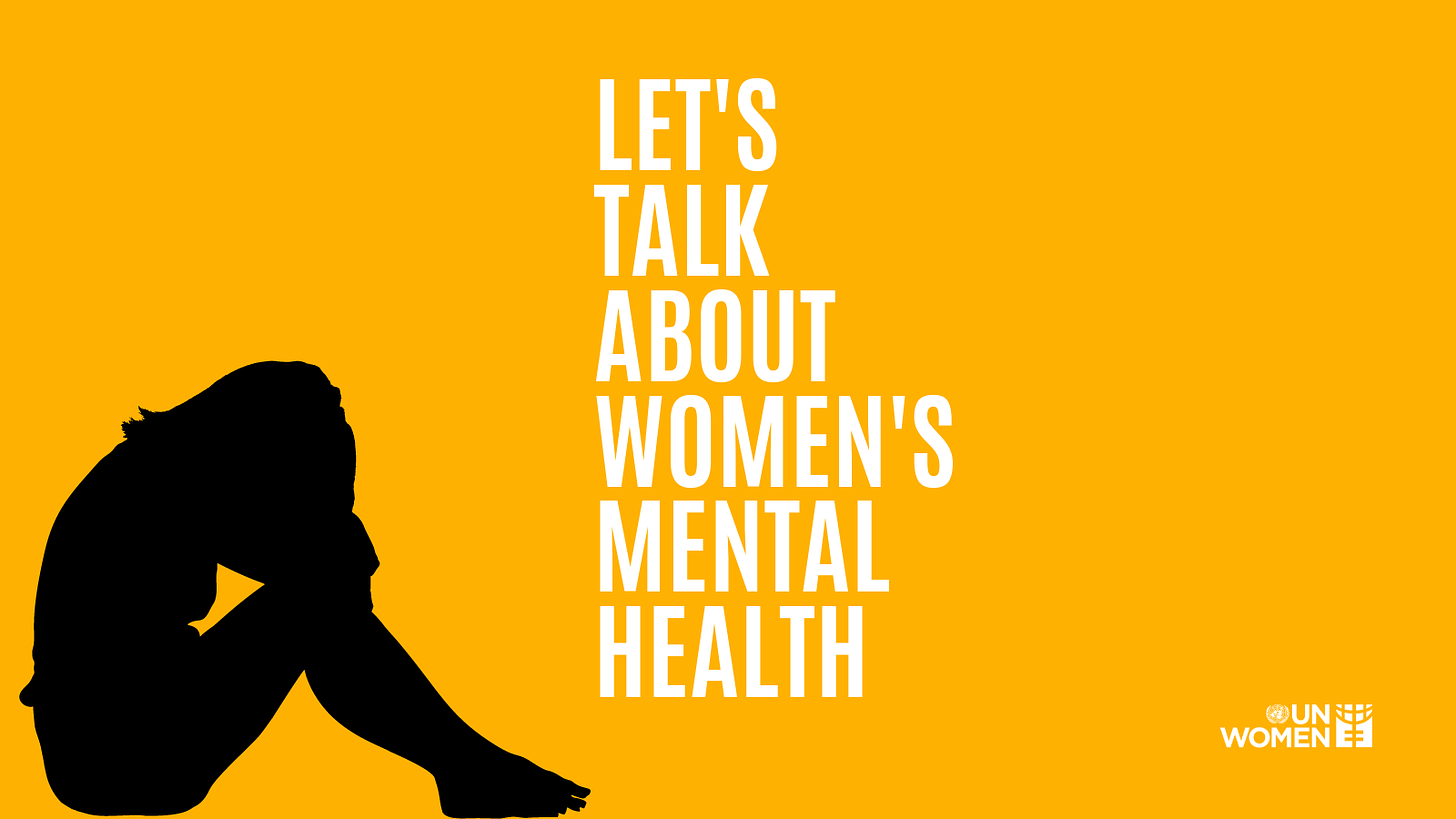International Women’s Day is upon us once again. March 8th is the day we are exhorted to turn our attention to women: to their achievements and struggles, their courage and their suffering, their indispensable roles in our societies—and to what more can be done, mostly with men’s tax dollars, to promote and advantage them. When I say “turn our attention,” I am speaking only metaphorically, of course. Our attention is always turned toward women, perpetually and ceaselessly: in praise, in awe, in defense; with outrage and indignation.
This year, as the International Women’s Day (IWD) website informs us, we are to focus on the concept of “equity,” accepting that “equal opportunities aren’t enough” and that “equal isn’t always fair.” After 40 years of affirmative action hiring for women, special legal status, targeted promotions, and ceaseless affirmation—and at a time when women are already faring far better than men in education and employment—the promoters of IWD demand yet more women-only opportunities, special benefits, set-asides, hiring targets, start-up monies, government grants, and other gender perquisites in addition to all the accompanying pro-female hoopla. To add a dollop of ludicrous dolor, the IWD website announces “sadly” that “Gender parity won’t be attained for well over a century.”
To say that I do not celebrate International Women’s Day is to put it too mildly. I not only object to it but believe that the day—and all of its nauseous ideological, political, legal, and economic baggage—should be immediately retired and blotted from the calendar.

International Women’s Day exacerbates the combined self-glorification and self-pity too many women already exhibit when they think of themselves as women. Though the 1960s was supposed to free women from regarding themselves first and foremost as “the Other,” in Simone De Beauvoir’s words, IWD instead heightens the constant dreary self-regard, telegraphing that women’s experiences, sorrows, and triumphs—simply because they are women’s—deserve special recognition and massive wealth transfers. The rigged game is revealed by the fact that International Men’s Day (November 19th) has at best a nominal existence, passing every year in near-complete oblivion.
The Marxist theorist, writer, and labor activist Clara Zetkin, who is generally credited with inaugurating IWD in 1910, at least made clear that women would necessarily work in concert with men to achieve “the social emancipation of labor.” In her 1909 essay “German Socialist Women’s Movement,” she explicitly opposed “the bourgeois women righters’ credo” that women should join with other women to “strive exclusively for women’s rights.” Zetkin favored a “class-war of all the exploited, without difference of sex, against all who exploit, without difference of sex.” That she also favored special meetings and measures to advance women suggests a contradiction in her ideology, but at least her platform did not depict all women as all men’s victims.
Today, any emphasis on cooperation and shared endeavor, any recognition of men’s humanity, achievements, and needs (aside from their need to overcome “toxic masculinity” and defer more perfectly to women)—is strikingly absent from IWD pronouncements, which continually equate “gender equality” (or “equity”) solely with advancing women.
In this, IWD is, of course, merely a microcosm of our culture generally. Whether the issue is suicide or drug addiction, employment or incarceration, homelessness or homicide, our societies always emphasize the impact on women, even when men are the vast majority of suicides, drug overdoses, workplace fatalities, prison inmates, homeless, or homicide victims. The IWD website speaks continually of “gender parity” without once mentioning that in education, employment, health, and longevity, women have been doing better than their male peers for decades.

This is rank prejudice, and no civilized country should endorse it. IWD should be labelled a relic of an outmoded era in which women’s humanity was wrongly valued above men’s. School children should be taught that countries where IWD is still observed are strange and dangerous places for men and children because of their antiquated, irrational, and unjust practices.
Along with the cancellation of IWD should come a concerted effort to challenge and, ultimately, stamp out related manifestations of female supremacism and feminist bigotry. Expressions of preference for female humanity, such as “The Future is Female,” should be held up to ridicule and contumely. Indications of anti-male animus, now an all-too common currency in our elite and public cultures, should become as unacceptable as statements of anti-Semitism and anti-black racism. All people of good will should loudly boo any such statements when they occur. Anyone who lobs around statistics about female victimization should have lobbed back at them, with force, the multitudinous evidence of male disadvantage.
In place of International Women’s Day, a new day might be instituted to stress intersexual cooperation and harmony rather than division and animosity. It could be called International Men and Women’s Day. Men could pledge their support for women, and women could pledge their support for men—only the latter would be anything new or unusual. Politicians could speak of men’s and women’s distinctive needs and contributions. In particular, women could come forward to celebrate the men in their lives, enumerating the satisfaction and joy of giving back to men and loving them.
Dignitaries at the United Nations as well as in various non-governmental organizations would make speeches about the importance of amity, trust, and cooperation between men and women. School children could do projects about how each sex can better understand the other, and could learn about how men and women have cooperated and depended upon each other throughout history. Advertising and popular culture could be mobilized to spread a positive message about the new day.
For too long, International Women’s Day has been open and unabashed about its sex-based exclusions, actively channeling energy, resources, and compassion away from men towards women with a raft of false claims to support its chauvinism. Anyone genuinely interested in social flourishing should reject it without apology.
_______________
This article originally published on the Fiamengo File Substack.